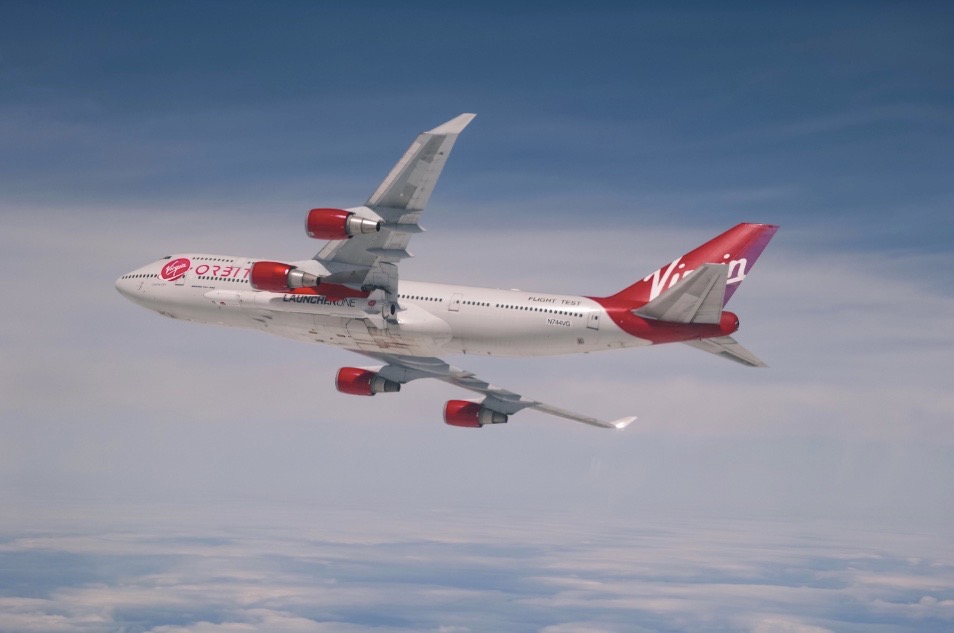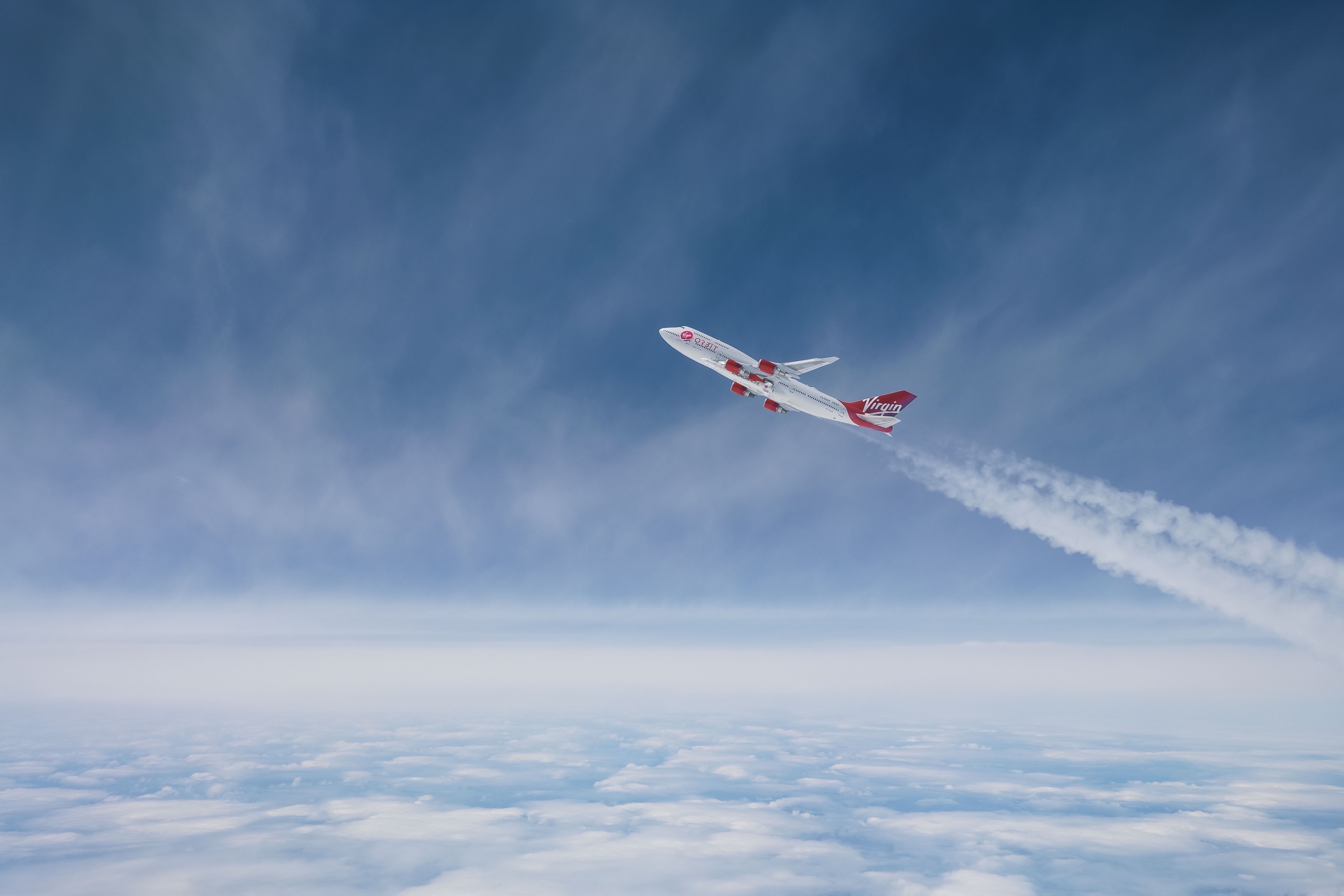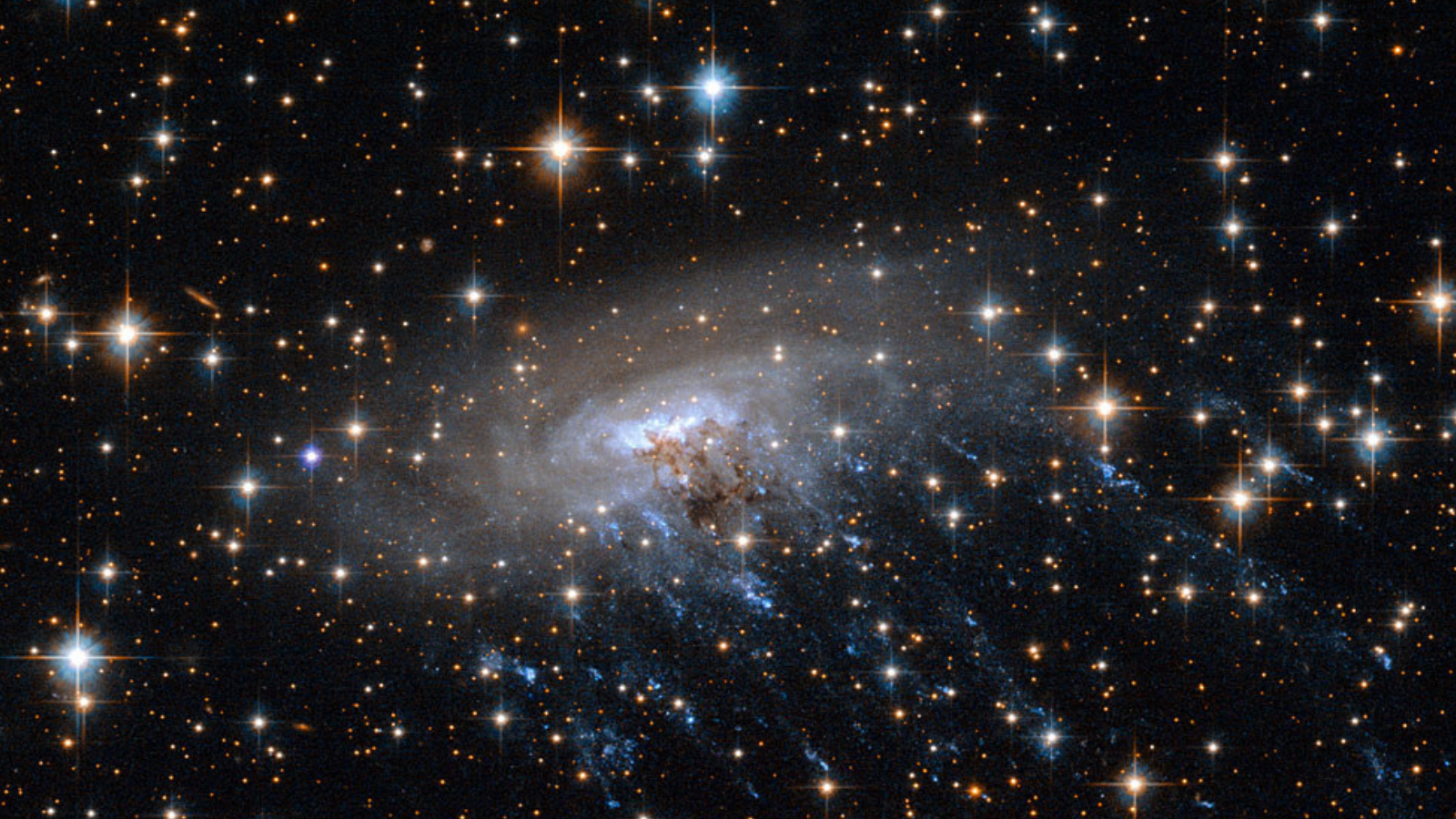Virgin Orbit aces final test flight before first launch (photos)

Breaking space news, the latest updates on rocket launches, skywatching events and more!
You are now subscribed
Your newsletter sign-up was successful
Want to add more newsletters?

Delivered daily
Daily Newsletter
Breaking space news, the latest updates on rocket launches, skywatching events and more!

Once a month
Watch This Space
Sign up to our monthly entertainment newsletter to keep up with all our coverage of the latest sci-fi and space movies, tv shows, games and books.

Once a week
Night Sky This Week
Discover this week's must-see night sky events, moon phases, and stunning astrophotos. Sign up for our skywatching newsletter and explore the universe with us!

Twice a month
Strange New Words
Space.com's Sci-Fi Reader's Club. Read a sci-fi short story every month and join a virtual community of fellow science fiction fans!
The runway is now clear for Virgin Orbit's first-ever launch.
On Sunday (April 12), the company completed the final test of its development program, sending its carrier plane, Cosmic Girl, aloft over the Southern California desert with an orbital rocket beneath its wing.
The captive-carry trial was "a complete, end-to-end launch rehearsal that exercises all of our ground operations; our mission control; all of our communications systems and protocols; all of our range assets; and our carrier aircraft’s takeoff, flyout, pull-up maneuver and return-to-base operations," Virgin Orbit representatives wrote in a blog post Friday (April 10) that described the test.
Related: Gallery: Virgin Orbit's LauncherOne rocket for satellite missions
Virgin Orbit has conducted captive-carry flights before, but the company filled the 70-foot-long (21 meters) LauncherOne rocket's propellant tanks with water on those jaunts. On Sunday, the tanks contained cryogenic liquid nitrogen, a substance much more akin to the liquid oxygen they'll hold during operational flights.
Sunday's flight capped a successful development campaign that has also included a drop test last year, in which Cosmic Girl released a rocket that fell passively to Earth. So Virgin Orbit is now ready to take the next big step: a test launch. But it's not clear at the moment when that mission will get off the ground.
Beautiful pull-up maneuver today! pic.twitter.com/aG8j7wKR7cApril 12, 2020
"That's a wrap on today's rehearsal, the final major test before our upcoming launch demo. We'll have more updates very soon — thanks for following along today!" Virgin Orbit wrote on Twitter after Sunday's test flight.
Breaking space news, the latest updates on rocket launches, skywatching events and more!
Virgin Orbit is part of Richard Branson's Virgin Group of companies, which also includes the space-tourism outfit Virgin Galactic.
Like Virgin Galactic, Orbit employs an air-launch strategy: During operational flights, Cosmic Girl will drop LauncherOne at an altitude of about 35,000 feet (10,700 m), and the rocket will then make its own way to space. The company will specialize in launching relatively small satellites; LauncherOne is capable of delivering about 1,100 lbs. (500 kilograms) to a variety of destinations in low Earth orbit, company representatives have said.
Though Virgin Orbit doesn't have any spaceflights under its belt, customers are already lining up. For example, the company recently secured a three-launch, $35 million deal with the United States Space Force.
- Virgin Orbit's rocket-launching plane keeps taking test flights with LauncherOne
- Virgin Orbit could launch Polish cubesat mission to Mars in 2022
- Virgin Galactic gearing up to start selling suborbital spaceflight tickets again
Mike Wall is the author of "Out There" (Grand Central Publishing, 2018; illustrated by Karl Tate), a book about the search for alien life. Follow him on Twitter @michaeldwall. Follow us on Twitter @Spacedotcom or Facebook.
OFFER: Save 45% on 'All About Space' 'How it Works' and 'All About History'!
For a limited time, you can take out a digital subscription to any of our best-selling science magazines for just $2.38 per month, or 45% off the standard price for the first three months.

Michael Wall is a Senior Space Writer with Space.com and joined the team in 2010. He primarily covers exoplanets, spaceflight and military space, but has been known to dabble in the space art beat. His book about the search for alien life, "Out There," was published on Nov. 13, 2018. Before becoming a science writer, Michael worked as a herpetologist and wildlife biologist. He has a Ph.D. in evolutionary biology from the University of Sydney, Australia, a bachelor's degree from the University of Arizona, and a graduate certificate in science writing from the University of California, Santa Cruz. To find out what his latest project is, you can follow Michael on Twitter.


